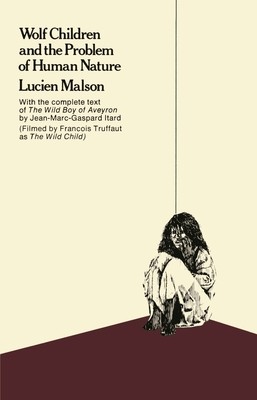
- We will send in 10–14 business days.
- Author: Lucien Malson
- Publisher: Monthly Review Press
- ISBN-10: 0853452644
- ISBN-13: 9780853452645
- Format: 14 x 21.6 x 1.1 cm, softcover
- Language: English
- SAVE -10% with code: EXTRA
Reviews
Description
The idea that man has no nature, Malson begins, is now beyond dispute. He has or rather is a history. In these provocative words, which form the theme of this essay, Malson carries one step further the assumption of behaviorists, structural functionalists, cultural anthropologists, and evolutionists that human nature is a constant. If the content of the analysis made by anthropologists is not affected by a human nature that lies outside of history, humanity to all effects and purposes becomes its history. So-called wolf children are children abandoned at an early age and found leading an isolated existence. They are thus natural examples of complete social deprivation and Malson explores their history in this complete study. His essay is followed by Itard's account of Victor, a wolf child found in the forests of central France at the end of the eighteenth century. Itard's two reports have become a classic of psychological and educational literature, and are presented here as the most important first-hand account of a wolf child.
EXTRA 10 % discount with code: EXTRA
The promotion ends in 19d.12:51:57
The discount code is valid when purchasing from 10 €. Discounts do not stack.
- Author: Lucien Malson
- Publisher: Monthly Review Press
- ISBN-10: 0853452644
- ISBN-13: 9780853452645
- Format: 14 x 21.6 x 1.1 cm, softcover
- Language: English English
The idea that man has no nature, Malson begins, is now beyond dispute. He has or rather is a history. In these provocative words, which form the theme of this essay, Malson carries one step further the assumption of behaviorists, structural functionalists, cultural anthropologists, and evolutionists that human nature is a constant. If the content of the analysis made by anthropologists is not affected by a human nature that lies outside of history, humanity to all effects and purposes becomes its history. So-called wolf children are children abandoned at an early age and found leading an isolated existence. They are thus natural examples of complete social deprivation and Malson explores their history in this complete study. His essay is followed by Itard's account of Victor, a wolf child found in the forests of central France at the end of the eighteenth century. Itard's two reports have become a classic of psychological and educational literature, and are presented here as the most important first-hand account of a wolf child.


Reviews